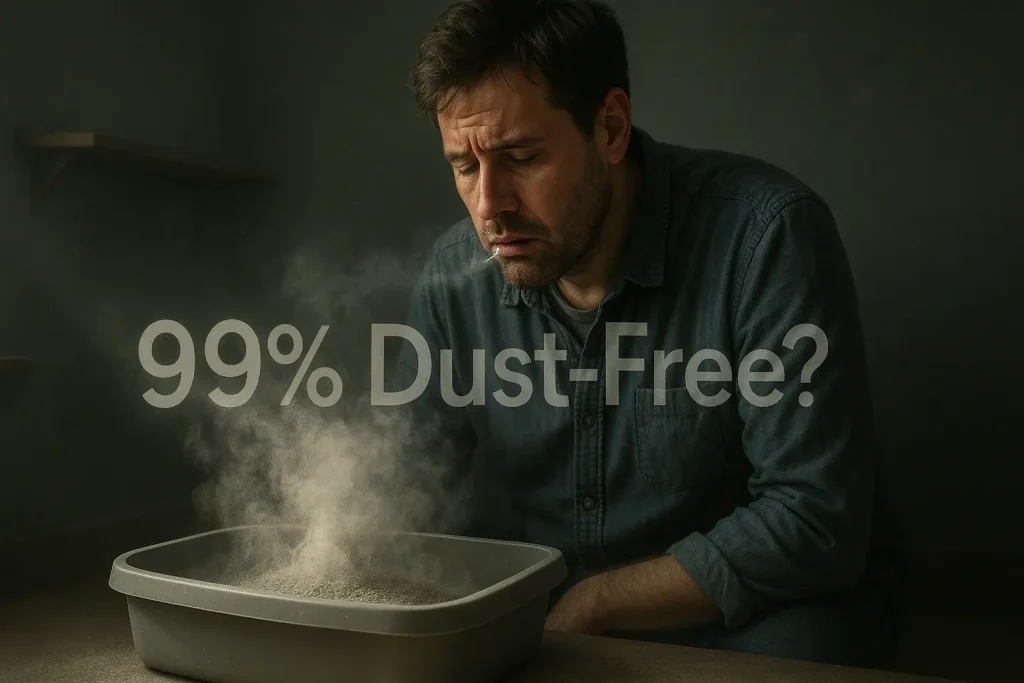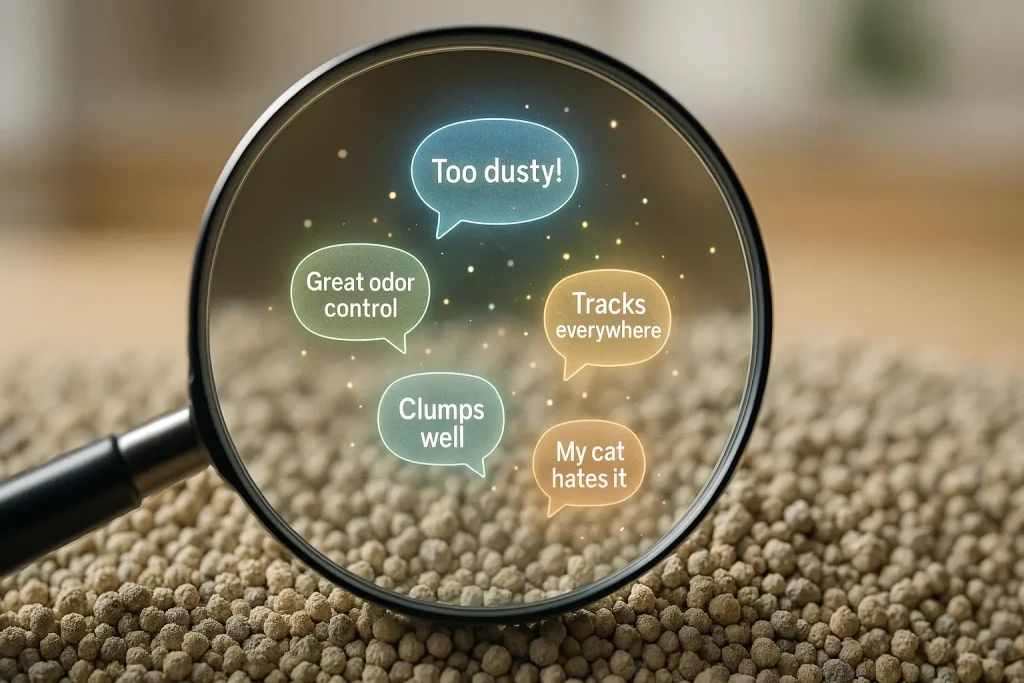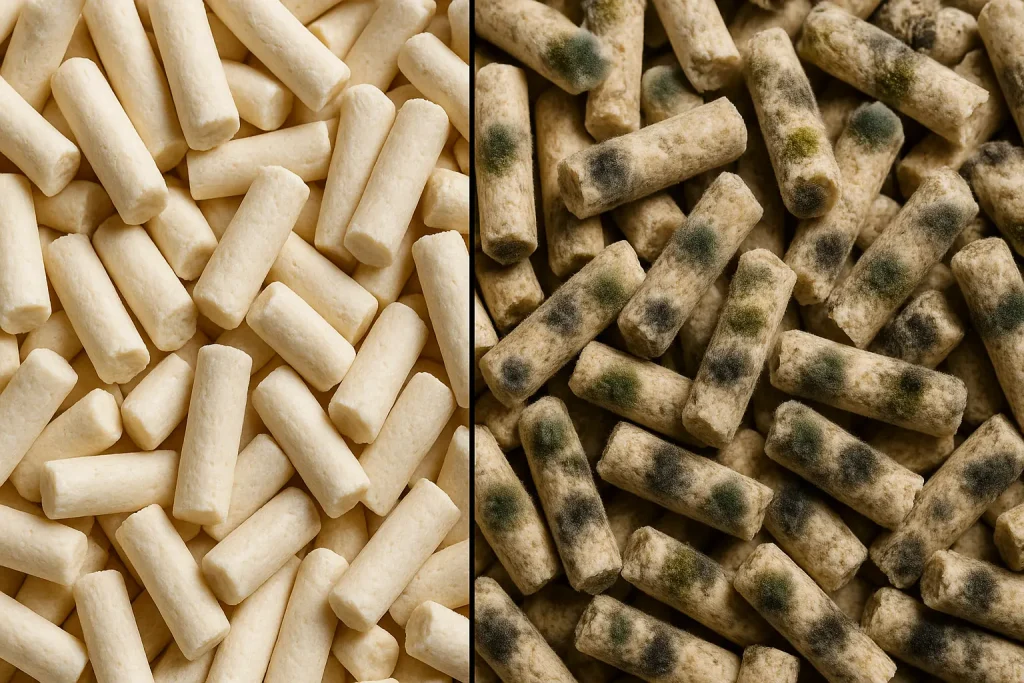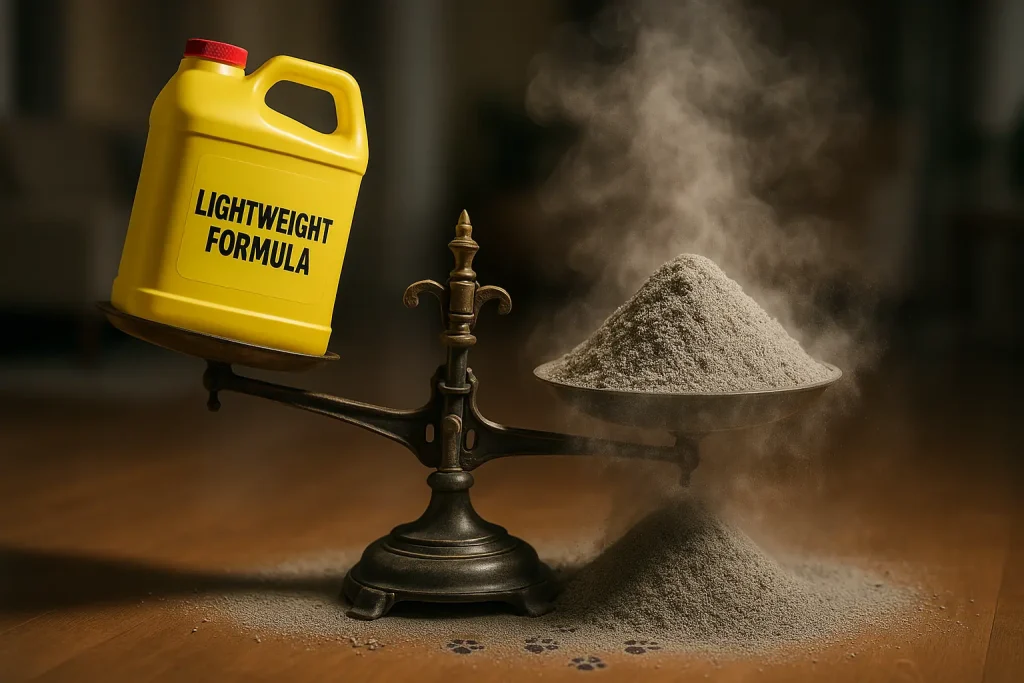The Febreze Fallacy: Why Masking Scents Won't Solve Your Litter Box Stink
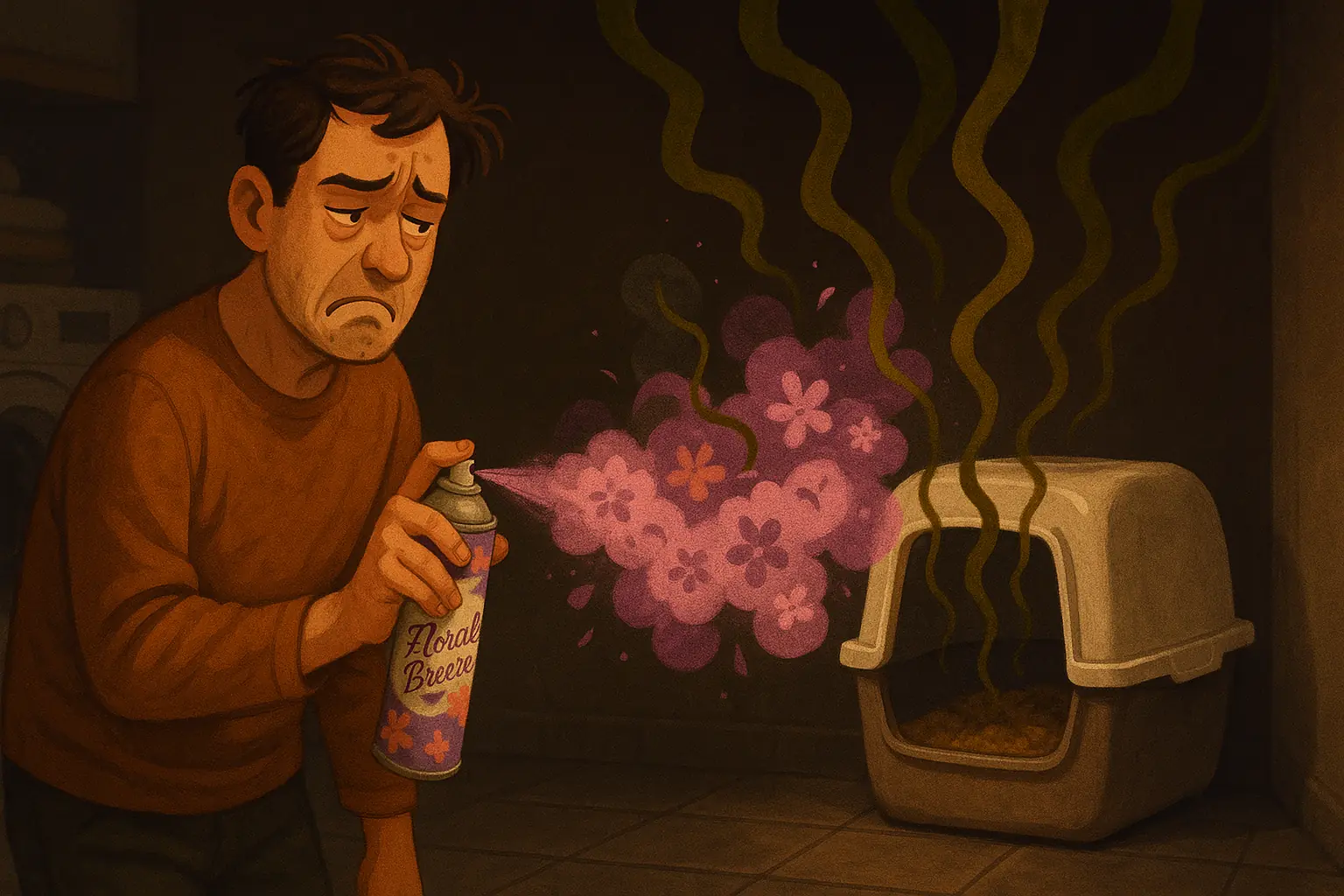
Ever walk into a room and get hit by that... unique aroma, even though you just sprayed something? That is the Febreze Fallacy in action for litter boxes. Many cat owners report scented products merely cover up odors temporarily. This approach often creates the dreaded "perfumed poop" smell. Users find this chemical-waste combination worse than the original issue.
Thousands of cat owners share this precise frustration online. They describe trying every floral, fresh linen, and mountain breeze scent available. These scented litters, owners find, frequently fail against persistent litter box smells. The underlying stink always wins. This outcome is not your fault; it highlights the product's own limitations.
But what if we told you there is a way to go beyond Febreze? Real, user-proven strategies attack the source of the odor. These methods do not just mask symptoms. That is what we have dug up from analyzing countless owner experiences.
Unmasking the Stink: What Users Say Are the REAL Litter Box Odor Culprits
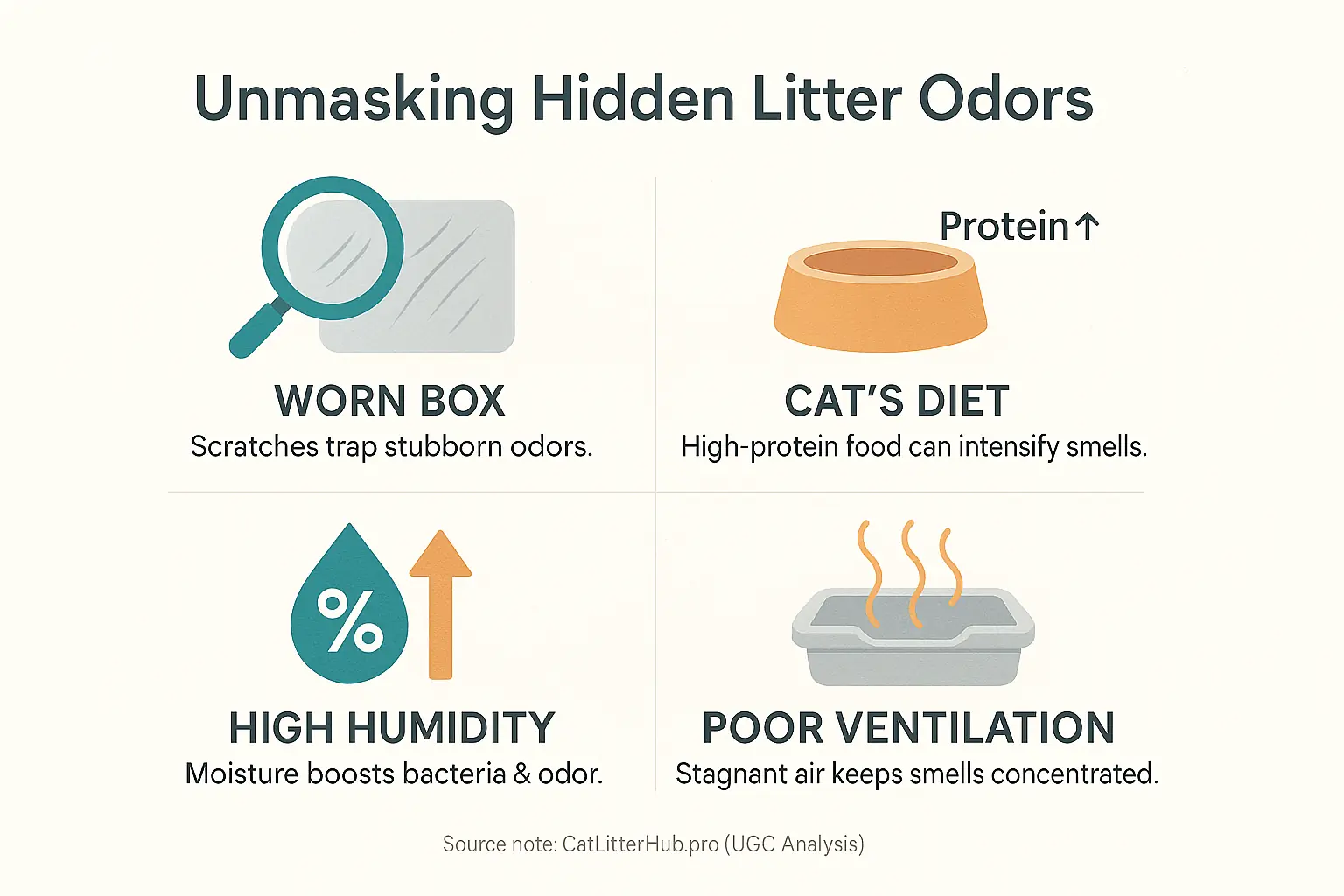
So, what really makes your house smell like a cattery? User experiences point to several key culprits. Bacteria often lead this offensive charge. Ammonia from urine quickly follows. Your cat's diet also significantly influences waste odors, many owners observe.
The biggest offender, according to countless owners, is ammonia. This forms when bacteria break down urine. That eye-watering smell isn't far behind. Many users find some litters simply cannot keep up with this rapid chemical process.
What you feed your cat also plays a role in odor. A surprising number of owners link diet changes to different fecal smells. The litter box material itself draws user complaints too. Old, scratched plastic boxes, users report, can trap odors like a sponge.
But the number one culprit users consistently flag? Infrequent scooping. This single habit, feedback overwhelmingly shows, defeats most odor controls. Even the best litter cannot manage days-old waste. Daily scooping is absolutely essential, owners stress repeatedly.
Litter Power: Which Types Do Users Swear By for Serious Odor Annihilation?
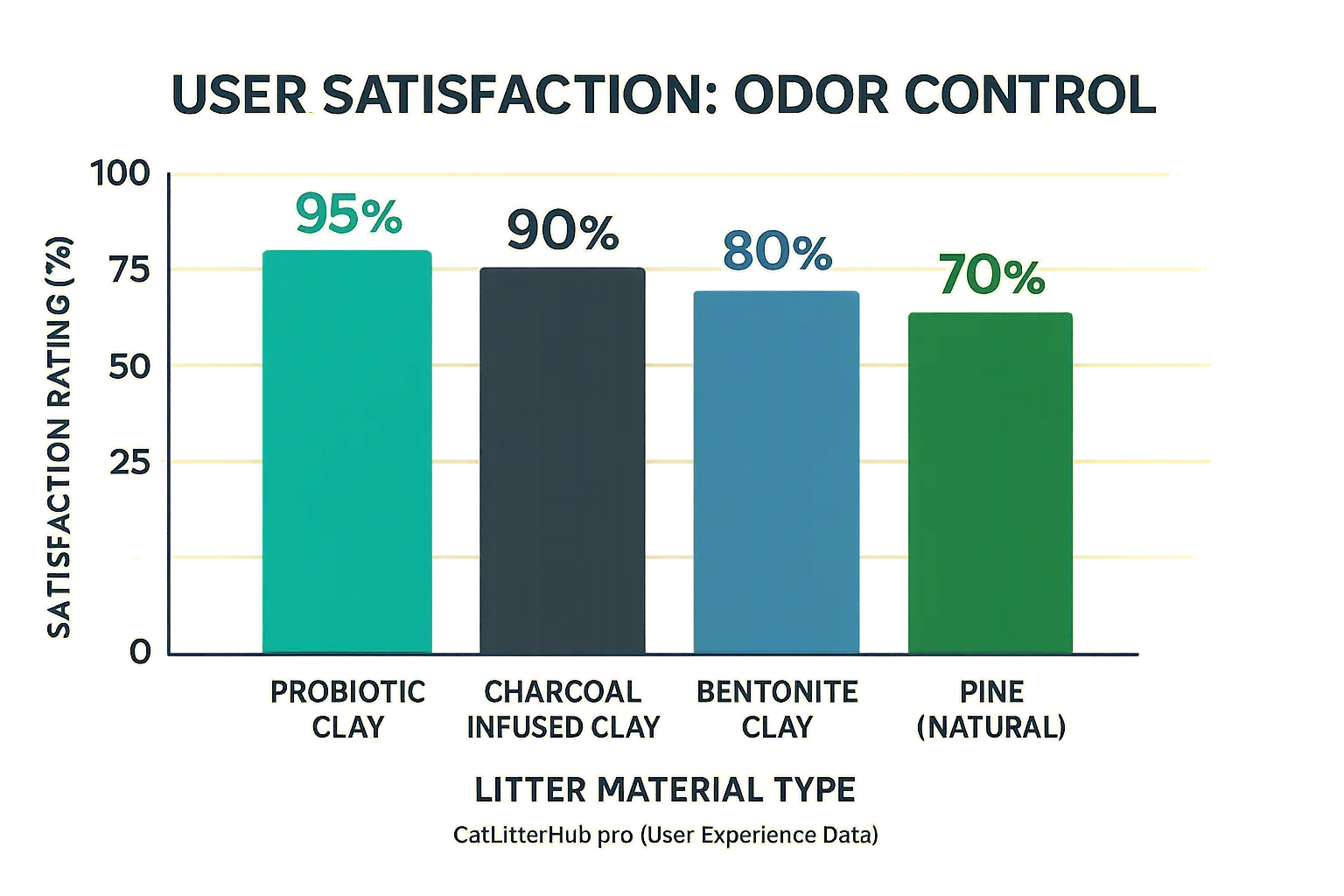
Okay, the battle plan starts with your litter choice. Forget fancy perfumes for a moment. What materials actually neutralize odors? Cat owners in online communities constantly discuss this. Their experiences highlight specific ingredients.
Activated charcoal is a hero ingredient many users rave about. Its power? Odor absorption. Litters containing charcoal, or even adding it separately, receive consistent praise. These products trap smells. They do not merely cover them. Many owners with multiple cats report a significant reduction in litter box odor. Some call the change transformative after switching to charcoal-enhanced options.
Heavy-duty clumping clays earn strong user endorsements for odor control. Their sealing action locks away smells effectively, a point many cat owners highlight. Yet, some users prefer specific natural litters. Pine or walnut-based options, for instance, gather positive reviews. These alternatives often work well for households sensitive to chemical scents. The consensus from user feedback? Absorbency is crucial. How well a litter dehydrates waste directly impacts odor neutralization.
A significant number of cat owners strongly advocate for unscented litters. Their reasoning often centers on cat preference. Added perfumes, users report, can deter cats from using the box. This creates bigger problems. Furthermore, many find that artificial scents merely mask or, worse, combine unpleasantly with existing odors. The collective voice in online forums often advises: go unscented for happier cats and truly fresher air.
Build Your Custom Odor Annihilation Plan
Cat Litter Odor Elimination Plan Builder
Your personalized plan highlights a core truth. Effective odor control demands a combined strategy. One product rarely solves intense smells. User experiences widely show that successful odor management integrates the right litter, consistent cleaning, and sometimes specific additives. Environmental factors also influence outcomes. These elements work together.
So, view your plan as a strong starting point. A launchpad. The recommendations draw from thousands of real cat owner outcomes. But every cat and home is unique. You are the final investigator for your situation. Experiment with the suggestions. Adjust them. Many owners discover their ideal odor solution through this kind of tailored testing.
The Cleaning Cadence: What Users Swear By for an Odor-Free Zone
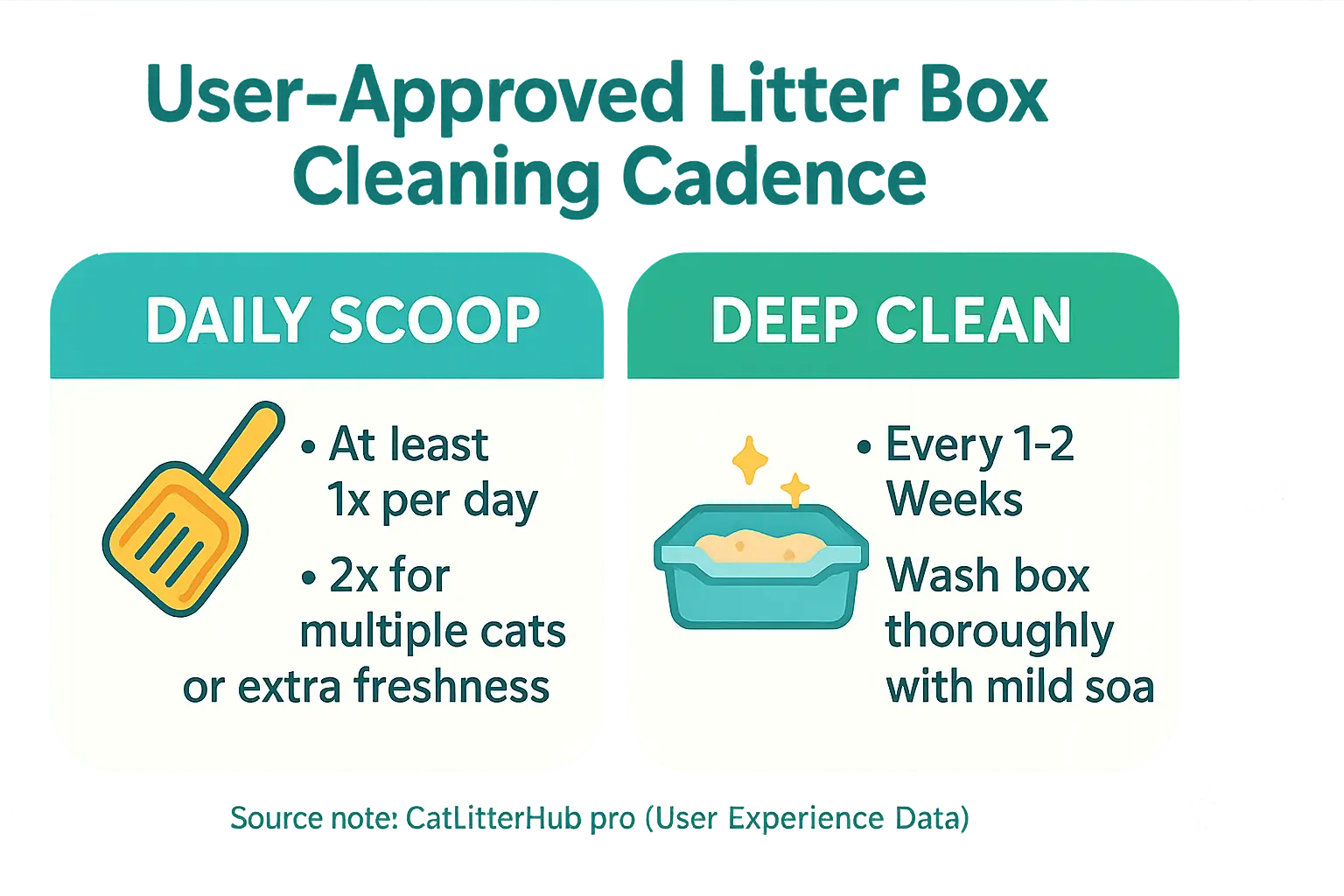
Think your litter does all the heavy lifting for odor control? Our analysis of thousands of user reviews suggests otherwise. Your 'Cleaning Cadence'—your scooping schedule—is king. Even top-tier litters fail, users report, if waste isn't removed promptly. This simple routine is the foundation of an odor-free zone.
The gold standard, echoed in countless owner experiences, is scooping at least once daily. Ideally twice. This is especially true with multiple cats. Or a particularly fragrant feline. This simple act, users consistently report, prevents ammonia buildup before it even starts. One owner of three cats shared a common victory: switching from once-a-day to twice-a-day scooping cut ambient odor dramatically, feeling like an 80% reduction.
Scooping alone isn't the whole story. Users also stress a full litter change. And a box scrub. How often? This varies. Litter type influences frequency. The number of cats does too. But the general wisdom from user feedback points to every 1-4 weeks for most clumping litters. Non-clumping varieties, many find, often need this deep clean more frequently.
Here's a pro tip, a gem from collective user experience. Don't just dump and refill. Actually wash the box. Use mild, unscented soap. Lingering bacteria in an unwashed box, owners frequently find, can make even fresh litter smell funky. Fast.
Environmental Allies: User Tips on Ventilation, Box Placement & Purifiers
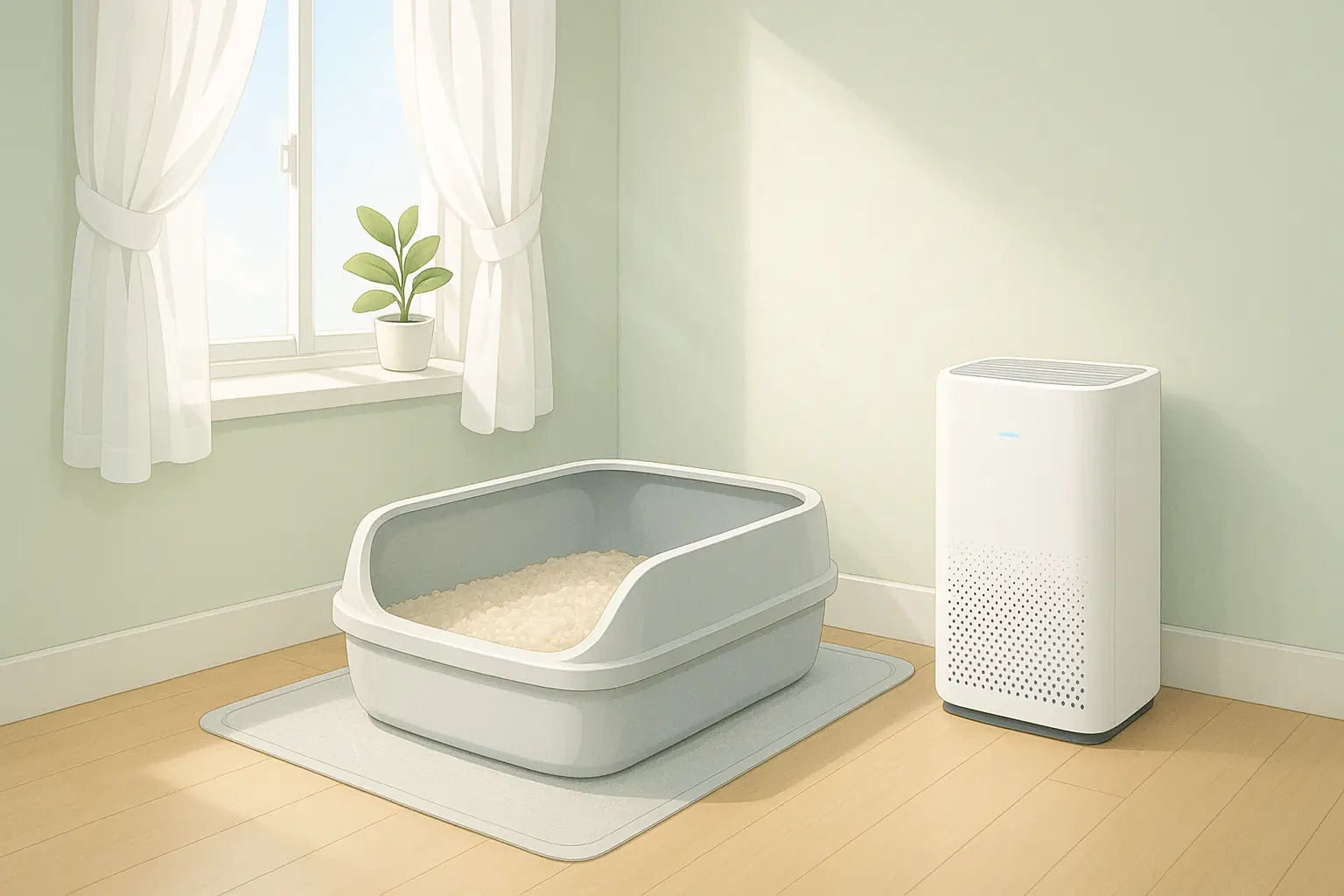
Your litter and cleaning habits are vital. Users say your home environment plays a big supporting role in the fight against odor. These are your environmental allies. Simple adjustments can make a world of difference, as many cat owners have discovered.
Good airflow is your friend. Many users recommend placing the litter box in a well-ventilated area. Cracking a nearby window regularly helps, they report. Avoid stuffy closets. Owners warn these become odor incubators. One user moved their box from a tiny laundry room to a larger bathroom with an exhaust fan. They noticed an immediate, dramatic improvement. This simple change transformed their home's freshness.
For an extra layer of defense, a surprising number of owners invest in small air purifiers. These devices are often placed near the litter box. They report these can be particularly helpful. Air purifiers trap airborne odor particles. Dust levels also decrease. Users find models with HEPA filters and activated carbon especially effective. This setup offers a powerful odor-fighting combination.
A less obvious tip from users? The litter box itself! Some find certain covered boxes can actually concentrate smells. This happens if not well-ventilated or cleaned super frequently. While seeming like they'd trap odor, the enclosed space sometimes works against you. Open-top boxes in a ventilated space sometimes fare better, according to their experiences. It's a practical insight many seasoned cat parents share.
Your Odor-Free Home: It's a System, Not a Single Product
So, there you have it. Annihilating extreme litter box odor isn't about one miracle spray. Nor is it about a single magic litter. Thousands of users have discovered this truth. Real odor control means building a smart system. This system combines the right litter. Smart additives help when appropriate. Diligent cleaning remains absolutely essential. A helpful environment supports your efforts.
The best part? These are strategies proven by real cat owners. Owners like you. Armed with this collective wisdom, you are now ready. Reclaim your home from the tyranny of litter box stink. Go forth and conquer!
Related Insight: DIY vs. Commercial Litter Odor Absorbers: What REALLY Works (& Saves Money)? (UGC Testimonials)
Stubborn litter box smells persist for many owners. So, they explore odor absorbing products. The core question: do commercial options truly outperform DIY solutions, or just drain your wallet? Real user experiences, not marketing claims, hold the answers.
Cat Litter Hub is currently sifting through countless owner reports on this. We're comparing the genuine effectiveness of store-bought versus homemade odor fighters. Soon, we'll unveil what really works and what saves you money, based entirely on this community wisdom.



